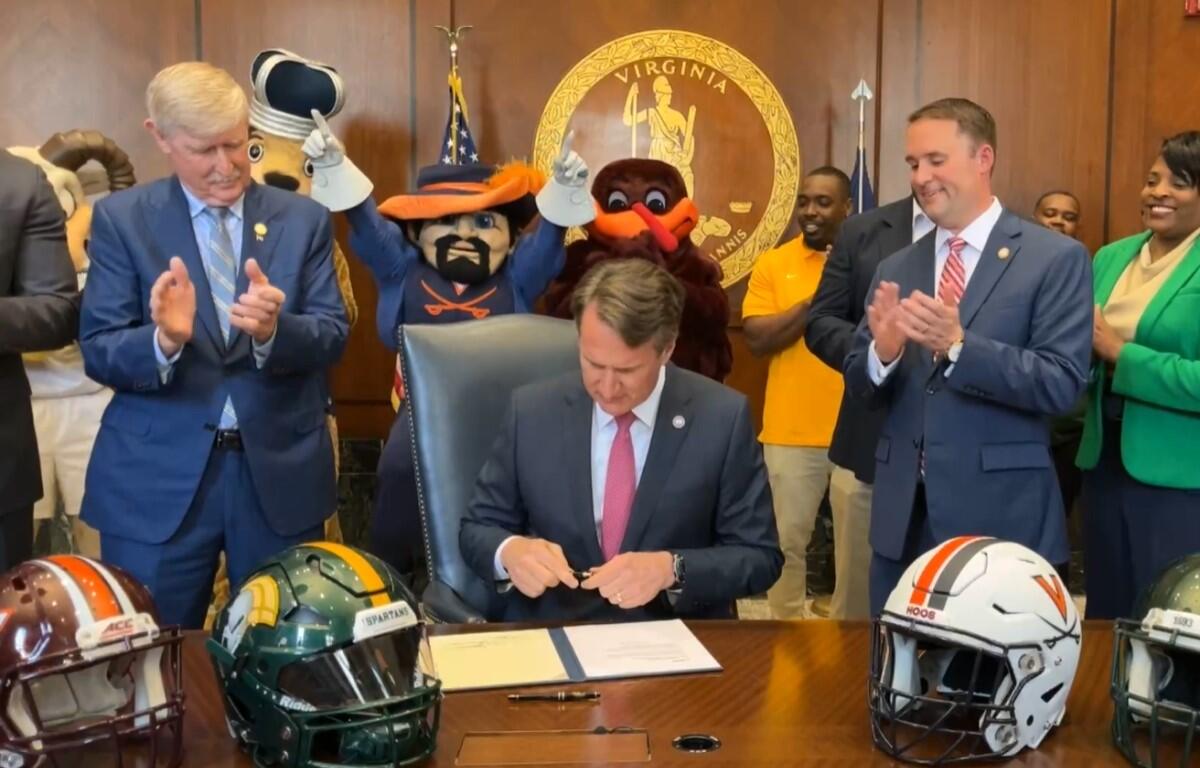RICHMOND, VA (CVILLE RIGHT NOW) – Governor Glenn Youngkin has signed into law beginning July 1 Virginia’s Name, Image, and Likeness legislation bipartisanly passed in the General Assembly last winter. The crux of this bill allows Virginia colleges and universities to make direct NIL payments to student-athletes… which puts Virginia in conflict with the NCAA which does not. The NCAA earlier this week loosened NIL rules a little bit by allowing schools to pay for 3rd-party services for athletes — like attorneys, accountants, etc — to help facilitate arrangements. But schools, under NCAA rules which are being overridden by this legislation, still cannot directly pay athletes.
As other states are doing the same, Governor Youngkin says this puts Virginia’s colleges and universities at the forefront of policies and procedures that they review, approve, and manage.
“This is going to be a program that’s going to be managed… not by outside institutions and associations,” Youngkin said.
“It enables us to be competitive across the nation with other Power Five conferences, other major universities, and enables our athletes to fully benefit in their God-given skills.”
Kansas City NIL attorney Mit Winter, who played basketball in the late ’90s at William & Mary, says states are increasingly passing such legislation usurping the NCAA, and he doesn’t think the NCAA has a whole lot of legal recourse. He says California was the first state in 2019 to pass some form of NIL, back when college athletes were not allowed to receive any compensation at all. Winter says when California passed its law allowing athlete compensation, the NCAA sent a letter to their Governor claiming the law might be unconstitutional and threatened suit.
“They never did sue, then lots of other state passed similar NIL laws, and the NCAA did nothing.”
Winter says the NCAA has a losing streak in the courts against suits contesting their regulations, including an injunction in a lawsuit filed by Virginia’s and Tennessee’s state Attorneys General who contend the NCAA cannot prohibit student-athletes from negotiating NIL deals before they sign on with institutions.



